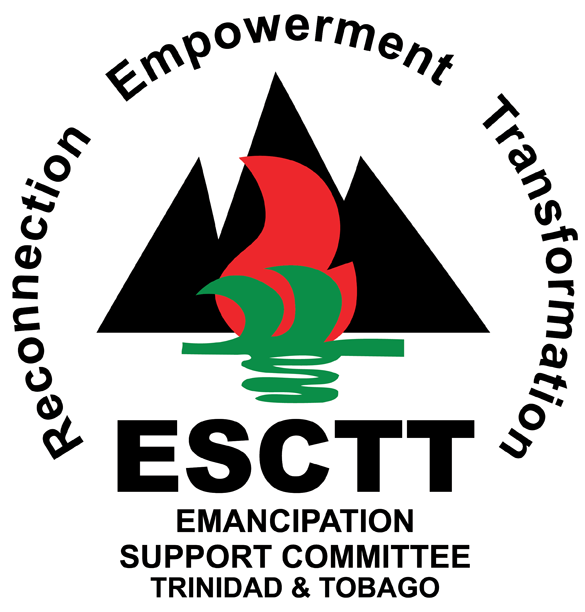Brothers and Sisters and all people of goodwill, Good morning.
Today, we celebrate the 176th anniversary of our ancestors’ emancipation from chattel slavery. This is the Event, the day that we eventually walked off the plantations after four years of further enslavement called the Apprenticeship period, which was shortened by our people’s agitation and resistance. So for us the first Emancipation Day was 1838 and not the colonial recording of 1834.
As we celebrate this Event of Emancipation we are reminded of the freedoms for which enchained Africans, our ancestors, fought to end chattel slavery, and for which their descendants, us, are still fighting for the freedom to be Africans in this land.
This nation continues to hold Trinidad and Tobago born Africans, captives to a system that was designed neither for our freedom nor our humanity. Africans who insist in practicing a way of life which is decidedly African, in clothing, hairstyle, religion and education, attract some of the most negative responses from the agencies of the state. They are marked as people to be ridiculed, by some of their own and to be treated disrespectfully and unjustly in this land by some of the representatives of the coercive power of the state, representatives of the commercial power centers and representatives of the educational organs of state control.
After some 176 years of emancipation from chattel slavery; after some 124 years of colonial rule and after 52 years, come the end of August, of political independence, those of us who look African, and particularly those of us with black skin, full lips, wide nostrils, tightly curled or locked hair and who see the world through African eyes often receive neither justice nor respect. Even in our own households, the darker skinned person is more likely to be the subject of ridicule from the lighter skinned ones.
This is not by chance, but deliberate action taken over time to dehumanize us. The fact that we could see each other, in many instances, not with love but with hostility and suspicion is part of the physic damage that has been left unattended since our physical enslavement. What makes a policeman who looks like you so willing to use the power of the job to take advantage of his own? What makes a teacher of today less willing to invest the time and effort to extract greater effort from those in his or her charge, especially when they themselves had that reassuring support? What makes a banker insist on the most stringent of conditions to provide financial assistance to a brother/sister for the most worthy of projects while at the same time being lenient to all else? These are the assault inflicted against our people on a daily basis in so many ways and often with such easy disregard of our need for justice.
The irony of all this is that they who inflicted these conditions on us continue to flourish and grow knowing full well that we have been conditioned to help in our own oppression. Coming to grips with this understanding is the first step towards righting this historical wrong. So what is our responsibility? We must collectively call to account those who inflicted this wrong and the current call for reparations must be engaged with all our collective strength. This is not going to be easy, for as Black Stalin reminds us “Blackman doh get nothing easy.”
Self repair is the act of making oneself whole. For us, it is the act of cleansing; of removing the centuries of barnacle and grime; of self hate which has stuck to us for so long that we do not even see it as a false garment to be removed and discarded. Self repair is you and me and us recognizing that we need to return to the life enhancing values of self love, not self negation; of self help not helplessness; of self discipline not blatant consumerism. We need to rekindle that love and concern for our people and not treat those who look like us with disrespect and contempt. We have to return to our spiritualism and to become the teachers and guides that our ancestors demand of us.
This will not be easy. But it must be done. The quest for reparations demands that we understand the extent of the damage that we have suffered and are still suffering, the nature of the repairs that we need to undertake and the resources required. Reparation is about repairing the historical wrong. It is our quest for freedom to be ourselves without hindrance and obstacles and for justice for our ancestors and our selves.
On this Emancipation Day, dance your dance, beat your drum and sing your songs of freedom. Today is the Event that we celebrate as we loudly proclaim our ancestors’ victories. Tomorrow we continue the Process of becoming free and finding justice.
May the spirit of our ancestors continue to guide and protect us.
Happy Emancipation from the Emancipation Support Committee of Trinidad and Tobago
Tel: 628-5008 | 753-8921 | 753-8789 | 761-1006
Follow us on Facebook – Emancipation Support Committee – ESC

